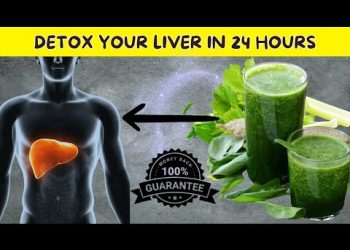Introduction
Your kidneys are vital organs that play a critical role in filtering waste, balancing electrolytes, and managing blood pressure. However, certain foods can jeopardize kidney health, especially if consumed excessively. This article will explore the top 18 foods that can potentially harm your kidneys and provide tips on maintaining a kidney-friendly diet.
The Danger of Potassium-Rich Foods
Foods high in potassium, such as bananas, avocados, apricots, and oranges, can pose a risk to those with existing kidney conditions. Healthy kidneys maintain potassium balance, but excess intake can lead to complications for those with chronic kidney disease (CKD). It is crucial to monitor and moderate the consumption of these foods if you have kidney issues.
High Sodium Foods to Avoid
Sodium is another dietary component that can harm the kidneys. Popular snacks like pretzels and processed meals are often high in sodium, which can elevate blood pressure and contribute to kidney damage over time. It’s important to check labels and opt for low-sodium options.
Processed Meats and Kidney Health
Processed meats such as sausages, hot dogs, and beef jerky contain high levels of sodium and phosphorus, which are detrimental to kidney function. A diet heavy in processed meats can strain the kidneys, increasing the risk of stones and long-term damage.
Sugary Drinks and Soda
Sodas, including their diet versions, are problematic due to their high phosphorus content and added sugars. Excessive sugar intake from sodas is particularly harmful for individuals with diabetes, as it can exacerbate kidney damage. Reducing soda consumption can significantly benefit kidney health.
Fermented Foods and Sodium
Fermented foods like pickles and relish are rich in sodium, which can negatively affect individuals with kidney concerns. While these foods offer probiotic benefits, their sodium content can be harmful if not consumed in moderation.
High Potassium and Phosphorus Grains
Whole grains, despite their health benefits, can be high in potassium and phosphorus. For those with declining kidney function, refined grains such as white rice may be a better choice than brown rice to help manage these mineral intakes.
Nuts and Kidney Concerns
Nuts, though high in healthy fats and proteins, also contain significant amounts of phosphorus and potassium. Consuming them in large quantities can be harmful to those with kidney disease, so remember to eat them in moderation.
Legumes: A Double-Edged Sword
Legumes, including beans and lentils, are excellent sources of plant-based protein and other nutrients. However, they are high in phosphorus and potassium, necessitating careful consideration for those with kidney issues who may need to limit their intake of these minerals.
Dairy Products and Their Impact
Dairy products, while nutrient-rich, contain phosphorus and potassium. Excessive consumption can stress your kidneys, especially if you are already dealing with kidney issues. Moderation is key, and low-fat options might be preferable.
Conclusion
Maintaining kidney health often requires dietary vigilance, particularly in avoiding foods high in sodium, potassium, phosphorus, and oxalates. By understanding which foods to limit, you can better protect your kidneys and work with healthcare professionals to tailor a diet that meets your individual needs. Remember, moderation and a well-rounded diet are essential for maintaining overall health.











